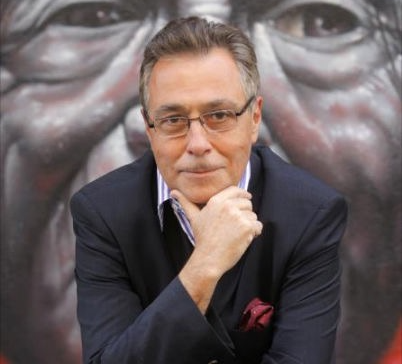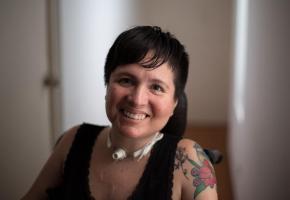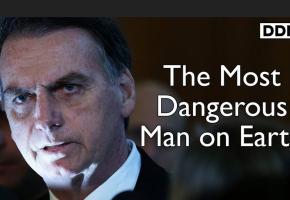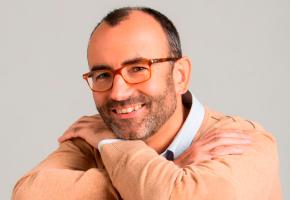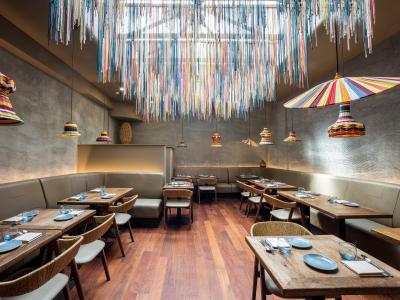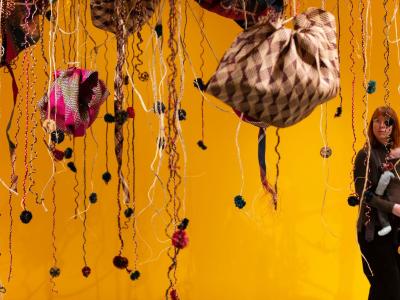I was dyslexic and not a very good student. I grew up in Mexico City in the 1950s and spent a happy childhood playing in the streets of my neighbourhood with friends. I preferred to play marbles, ride my bicycle and make footballs with paper and rubber bands than spend my time with books.
Everything changed when I was 17, my father died suddenly of heart disease at the age of 51. I became the head of my family and engaged in many different labours to sustain us. Without looking, Medicine came in search of me. In his memory I became an excellent student.
My father didn’t finish primary school, his main concern was always that I would study until I obtained a college degree. He has been the biggest influence on my life, for his strength, his honesty and integrity.
If you are not able to live in what you believe, you will end up believing in what you live. My high school teacher told me this and it’s the best piece of advice I’ve been given.
I fell in love with medicine at university in Mexico; I felt fulfilled treating and saving the lives of patients, but I also saw many who did not survive. This made me feel impotent to treat diseases such as cancer and in particular, leukaemia. I wanted to go into the field of research to try to make a difference to the outcome of patients’ lives.
I wanted to get into Harvard but didn’t know how. I spoke little English, my economic situation was not enough and I knew that Harvard had a very strict selection process which was even harder for foreign students. But I did not give up and contacted the best doctors at Harvard and finally gained a place.

I ambushed Professor Peter Parham in a lift. He was one of the main leaders in the field studying human leukocyte antigen (HLA) at the molecular level at Stanford University and I wanted to study with him. I waited for him with some selected pictures of my experiments, got into the elevator with him and spoke as fast as I could describing all the experiments that I had done, showing him multiple photos of gels illustrating one- or two-dimentional-isolectric focussing of HLA. Later he said: “I knew then that I didn’t have any choice but to accept him as a postdoctoral fellow in my laboratory.”
A car journey between Boston and Rhode Island changed my life. I had almost given up hope of a response when I applied for the job as Scientific Director of the Anthony Nolan Bone Marrow Trust (ANBMT). Then I got a call telling me I had to meet Professor John Goldman, the Trust’s Medical Director and an authority in the transplant of Stem Cell, at the Hilton Hotel at Boston Airport at 8.30am. I took an overnight flight from San Francisco to Boston that arrived at 6am, only to find he was two hours late and that he could only give me five minutes to tell him why I wanted the job before he rushed to get to his next meeting in Rhode Island. When I said I couldn’t tell him in 5 minutes, he remained in silence for 4 minutes; the reading glasses that he wore propped on top of his head, dropped down to his eyes. Then he said, ‘come with me’; we rushed out of the hotel to a car that took us to Rhode Island during which time he interviewed me. A few weeks later I was offered the position of a lifetime.
I fell in love with London straight away, the great diversity of cultures and ethnicities that allow me to learn, as well as the great meals, museums, concerts, and the safety of the city and the enormous passion that there is in the NHS for treating patients. I’ve always felt accepted as a foreigner and I’ve received a lot of support from my medical colleagues and teachers.
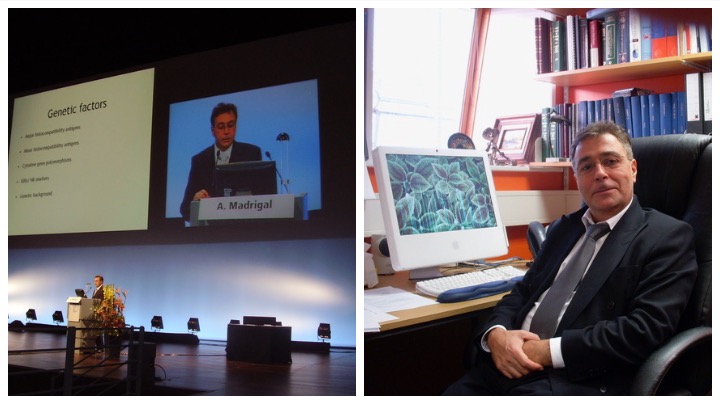
What motivates me is the possibility of saving patients with cancer, particularly leukemia, the opportunity to educate students, to collaborate with colleagues around the world and to help countries that do not have the same capacity to help their citizens improve their health conditions.
I feel very proud to be Mexican, and I believe that my culture has taught me to fight for a better world; overcoming hardship has taught me that everything can be achieved with perseverance.
The most difficult obstacle to overcome has been to speak good English because I am dyslexic. Even so, I have given more than 500 lectures in more than 58 countries (243 cities) and most of them in English and I have held important academic positions besides UCL Professor, for example Vice-Provost for Latin America or President of the European Society of Bone Marrow Transplantation (EBMT)
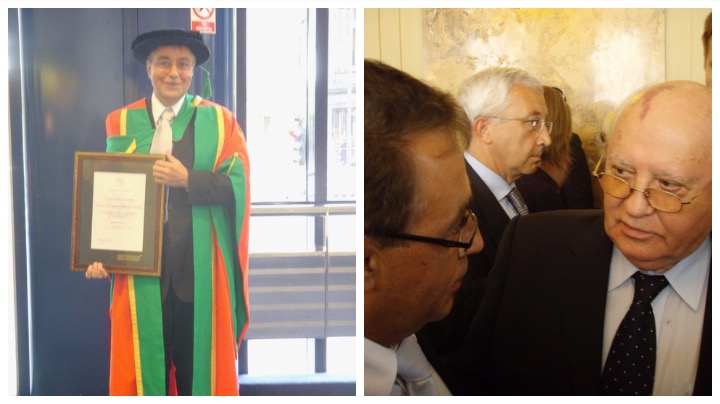 with Mikhail Gorbachev
with Mikhail Gorbachev
My perfect Sunday in London…is a quiet breakfast at home with my wife Maria Elena, walk to the Coolhurst tennis club and play doubles with my friends for two hours, have a nice lunch with Maria Elena and friends in my backyard on a bright, sunny day, and read a good book, watch a movie or walk through Hampstead Heath.
My favourite place to eat is Turkish, Indian or fish and chips. There are so many restaurants in London, so imposible to select just one...when I feel homesick I go to MESTIZO on the Hampstead Road.
The things I most enjoy are medicine, science, patients. I love to read my medical journals such as NEJM, Lancet or Nature. Or in the mornings (between 5am and 8am) write my novels or fantasize about them.
The thing I find most tedious is having to sleep. I find it a waist of time…
My favourite word in English…Persistence
The word my most dislike in English…Give up
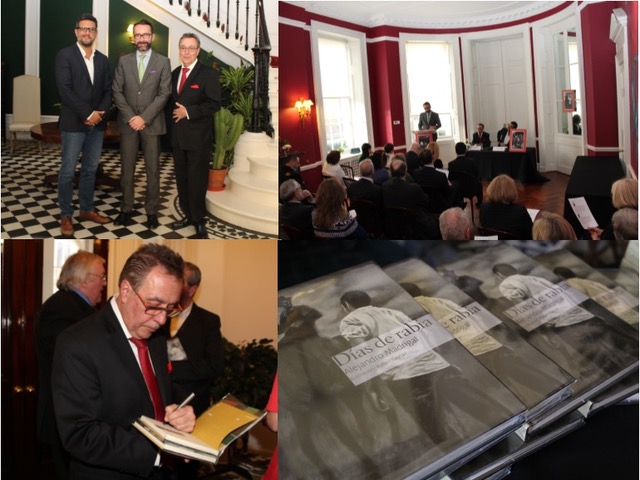
Alejandro signing his first novel
Alejandro’s first novel Dias de Rabia, was recently published by Milenio books
https://www.milenio.com/cultura/rabia-alejandro-madrigal-llevada-cine-f…


